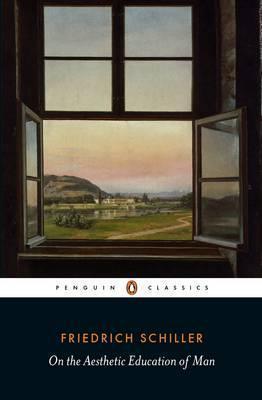sophie-87 a publié une critique de On the Aesthetic Education of Man par Friedrich Schiller
L’art comme promesse d’humanité – Mon expérience avec L’Éducation esthétique de l’homme de Friedrich Schiller
4 étoiles
Lire L’Éducation esthétique de l’homme de Friedrich Schiller a été pour moi une épreuve intellectuelle exigeante, mais aussi une révélation. J’y ai découvert une réflexion qui dépasse largement la théorie de l’art : c’est une méditation sur la condition humaine, sur la liberté, et sur la possibilité de réconcilier raison et sensibilité.
Schiller écrit ces lettres dans un contexte de bouleversements politiques et sociaux, après les désillusions de la Révolution française. J’ai senti, à chaque page, sa volonté de trouver une issue au déchirement entre l’homme rationnel, soumis à la loi et à l’ordre, et l’homme sensible, dominé par ses instincts et ses passions. Ce qui m’a profondément marqué, c’est la manière dont il place l’art et l’esthétique comme médiateurs : c’est par la beauté, dit-il, que nous pouvons apprendre à harmoniser ces deux dimensions.
En lisant, j’ai été frappé par l’idée que la liberté véritable n’est pas …
Lire L’Éducation esthétique de l’homme de Friedrich Schiller a été pour moi une épreuve intellectuelle exigeante, mais aussi une révélation. J’y ai découvert une réflexion qui dépasse largement la théorie de l’art : c’est une méditation sur la condition humaine, sur la liberté, et sur la possibilité de réconcilier raison et sensibilité.
Schiller écrit ces lettres dans un contexte de bouleversements politiques et sociaux, après les désillusions de la Révolution française. J’ai senti, à chaque page, sa volonté de trouver une issue au déchirement entre l’homme rationnel, soumis à la loi et à l’ordre, et l’homme sensible, dominé par ses instincts et ses passions. Ce qui m’a profondément marqué, c’est la manière dont il place l’art et l’esthétique comme médiateurs : c’est par la beauté, dit-il, que nous pouvons apprendre à harmoniser ces deux dimensions.
En lisant, j’ai été frappé par l’idée que la liberté véritable n’est pas seulement politique ou juridique, mais intérieure. Schiller affirme que l’éducation esthétique permet de former des êtres capables de juger librement, de résister aux contraintes sans sombrer dans l’anarchie. Pour moi, cette perspective a une résonance actuelle : dans un monde saturé de conflits et de discours brutaux, la beauté peut encore nous rappeler une forme d’unité.
J’ai aussi été touché par la confiance de Schiller dans l’art comme force de transformation. Loin d’être un luxe ou un divertissement, il devient ici une nécessité morale. Cette conviction m’a redonné foi dans le rôle de la culture : non pas un ornement, mais une manière de construire l’humanité.
L’Éducation esthétique de l’homme m’a laissé une impression durable. C’est un texte exigeant, parfois ardu, mais qui m’a fait sentir que derrière chaque réflexion se trouve une promesse : celle que l’art, en reliant la raison et le cœur, peut nous rendre plus libres et plus humains.


